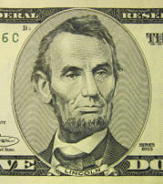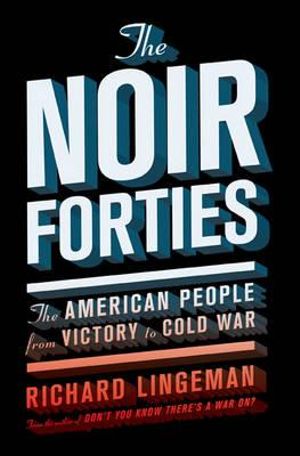 Thanks to Steven Spielberg and his film Lincoln, we’ve been hit by a new wave of management wisdom supposedly gleaned from the film’s central character. Business Week ran a piece titled “Career Lessons from Spielberg’s Lincoln”; the New York Times called theirs “Lincoln’s School of Management.”. . .
Thanks to Steven Spielberg and his film Lincoln, we’ve been hit by a new wave of management wisdom supposedly gleaned from the film’s central character. Business Week ran a piece titled “Career Lessons from Spielberg’s Lincoln”; the New York Times called theirs “Lincoln’s School of Management.”. . .
. . . continued at TheNation.com, HERE
Journalism
Cover-Up in the Catholic Church: Alex Gibney Q&A: The Nation 2/7
 The fight against the Catholic Church cover-up of sexual abuse of children by priests is a story that has heroes as well as victims. Alex Gibney’s new documentary, “Mea Maxima Culpa: Silence in the House of God,” is playing on HBO throughout February.
The fight against the Catholic Church cover-up of sexual abuse of children by priests is a story that has heroes as well as victims. Alex Gibney’s new documentary, “Mea Maxima Culpa: Silence in the House of God,” is playing on HBO throughout February.
. . . Q&A with Alex Gibney at TheNation.com, HERE.
Joe Kennedy, Cold War Critic: The Nation, 2/4
 As we head toward the 50th anniversary of the Kennedy assassination later this year, a new book has revealed the striking differences between JFK and his father, Joe Kennedy on the bedrock fact of American politics during that era: the Cold War. JFK’s declaration in his famous inaugural address is well known: the US should “pay any price, bear any burden” to fight communism everywhere in the world. Virtually unknown, until now, is the fact that a decade earlier his father had declared the entire Cold War “politically and morally” bankrupt.
As we head toward the 50th anniversary of the Kennedy assassination later this year, a new book has revealed the striking differences between JFK and his father, Joe Kennedy on the bedrock fact of American politics during that era: the Cold War. JFK’s declaration in his famous inaugural address is well known: the US should “pay any price, bear any burden” to fight communism everywhere in the world. Virtually unknown, until now, is the fact that a decade earlier his father had declared the entire Cold War “politically and morally” bankrupt.
. . . continued at TheNation.com, HERE
‘The Americans’: Soviet Spies on TV — The Nation 1/31
 The best thing about The Americans, the new spy show on FX, is that the Soviet spies are not Julius and Ethel Rosenberg. They are a different married couple—Russians, sent by the KGB from Moscow to Washington, DC. The show begins shortly after Reagan takes office. . . .
The best thing about The Americans, the new spy show on FX, is that the Soviet spies are not Julius and Ethel Rosenberg. They are a different married couple—Russians, sent by the KGB from Moscow to Washington, DC. The show begins shortly after Reagan takes office. . . .
. . . continued at TheNation.com HERE
When Universities Sell Art: The Case of Columbia’s Rembrandt — The Nation 1/22
 A Rembrandt portrait that had been protected by Columbia student protesters in 1968 and later sold by Columbia for $1 million is back on the market this year, with a price tag of $47 million. The story of the 1658 painting, Man with Arms Akimbo, has many lessons, starting with the folly of universities selling art to make money. . . .
A Rembrandt portrait that had been protected by Columbia student protesters in 1968 and later sold by Columbia for $1 million is back on the market this year, with a price tag of $47 million. The story of the 1658 painting, Man with Arms Akimbo, has many lessons, starting with the folly of universities selling art to make money. . . .
. . . continued at TheNation.com HERE.
Eight Things I Miss about the Cold War: TomDispatch 1/15
 It couldn’t be a sadder thing to admit, given what happened in those years, but — given what’s happened in these years — who can doubt that the America of the 1950s and 1960s was, in some ways, simply a better place than the one we live in now? Fifty years ago, college was cheap, unions were strong, and we had no terrorism-industrial complex. . .
It couldn’t be a sadder thing to admit, given what happened in those years, but — given what’s happened in these years — who can doubt that the America of the 1950s and 1960s was, in some ways, simply a better place than the one we live in now? Fifty years ago, college was cheap, unions were strong, and we had no terrorism-industrial complex. . .
. . . continued at TomDispatch.com, HERE — also at TheNation.com HERE — or Mother Jones HERE – or Salon.com HERE — or Huffington Post HERE — or Daily Kos HERE — or Alternet HERE — or Truthdig HERE — or History News Network HERE — or Redit HERE – with 480 comments!
The Noir Forties: L.A. Review of Books, 1/15
 DETOUR is an ultra-low-budget 1946 film noir that packs an undeniable punch. “He went searching for love,” the Detour poster said, “but fate forced a detour” — to accidental murder. The film is one of Richard Lingeman’s touchstones in his new book The Noir Forties: The American People from Victory to Cold War. . . .
DETOUR is an ultra-low-budget 1946 film noir that packs an undeniable punch. “He went searching for love,” the Detour poster said, “but fate forced a detour” — to accidental murder. The film is one of Richard Lingeman’s touchstones in his new book The Noir Forties: The American People from Victory to Cold War. . . .
. . . continued at the L.A. Review of Books, HERE.
Lincoln and Emancipation: L.A. Times op-ed 1/2/2013
 The Emancipation Proclamation, issued by President Abraham Lincoln 150 years ago this week, has often been criticized by blacks, by radicals and also by mainstream historians who doubt its significance as a turning point in the Civil War and in American history.
The Emancipation Proclamation, issued by President Abraham Lincoln 150 years ago this week, has often been criticized by blacks, by radicals and also by mainstream historians who doubt its significance as a turning point in the Civil War and in American history.
. . . continued at LA Times op-ed page HERE or http://www.latimes.com/news/opinion/commentary/la-oe-wiener-emancipation-proclamation-20130102,0,5858934.story
Largest Mass Execution in US History – The Nation 12/26
 December 26, 1862: thirty-eight Dakota Indians were hanged in Mankato, Minnesota, in the largest mass execution in US history–on orders of President Abraham Lincoln. Their crime: killing 490 white settlers, including women and children, in the Santee Sioux uprising the previous August.
December 26, 1862: thirty-eight Dakota Indians were hanged in Mankato, Minnesota, in the largest mass execution in US history–on orders of President Abraham Lincoln. Their crime: killing 490 white settlers, including women and children, in the Santee Sioux uprising the previous August.
.
Lincoln’s treatment of defeated Indian rebels against the United States stood in sharp contrast to his treatment of Confederate rebels. . . .
. . . continued at TheNation.com, HERE
Tarantino vs. Spielberg on Slavery: The Nation 12/25
 Two films about American slavery in the Civil War era are currently playing in theaters.
Two films about American slavery in the Civil War era are currently playing in theaters.
Steven Spielberg’s film “Lincoln” begins with a black soldier reciting the Gettysburg Address.
Quentin Tarantino’s film “Django Unchained” begins with a black slave being recruited to kill two whites murderers. . .
. . . continued at TheNation.com HERE